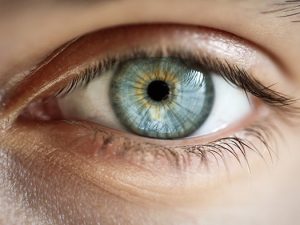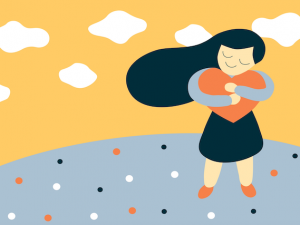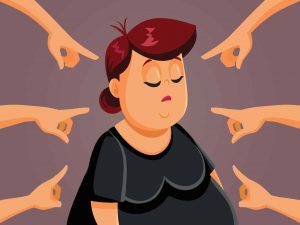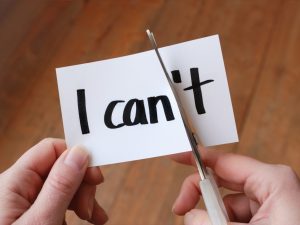After months of heat and a lot of sunlight, autumn arrives, a season characterized by a decrease in temperature and the number of hours of light that our body perceives; all this causes alterations in the biorhythm and the state of mind. At this time of year, many people feel sad, tired, apathetic, down, exhausted, and have difficulty concentrating. These symptoms are called autumnal asthenia; they appear due to a poor body adaptation to seasonal changes and usually last a few days or weeks. This biological disorder disappears as soon as the organism adapts and regulates itself.
Organize our life
To avoid the appearance of autumnal asthenia, the best treatment is its prevention by maintaining healthy lifestyle habits. It is recommended:
Maintain a varied, healthy and balanced diet to avoid nutritional deficiency. The diet must be rich in vitamins and fibre (fruit, nuts, whole grains, vegetables and legumes) and must provide proteins (fish, eggs, low-fat meat) for the proper functioning of the nervous system and to stimulate the production of neurotransmitters that regulate emotions.
Divide your intakes throughout the day and maintain a meal schedule. Thus we will avoid copious meals and heavy digestions.
Respect sleep patterns and sleep the necessary hours. Try to keep a fixed time to go to bed and get up. In this way, we will regulate the biorhythms and the stages of sleep and wakefulness.
Do moderate physical activity. Walking 40-60 minutes every day is a very healthy alternative. Regular and moderate physical exercise relaxes the mind by secreting endorphins and maintains muscle tone.
Take advantage of the hours of natural light to go out to sunbathe. Sunlight helps lift your spirits as it activates a series of neurotransmitters and stimulates the secretion of hormones responsible for emotions and biological control depending on the day and night.
Eliminate exciting substances for the nervous system such as theine, caffeine and toxins such as alcohol and tobacco.
Carry out intellectual activities that stimulate and motivate us.depressed woman leaning on a tree in autumn
Defences on high
Autumn is also a season where the body decreases its defences due to the drop in temperature. To activate the immune system, a series of recommendations must be followed:
After the summer is a good time to detoxify the body of excesses and re-educate the body with healthy habits.
Fall is a great time to revert to maintaining meal schedules.
Take advantage of this season's food as they have the necessary nutrients for this time of year.
Autumn fruits and vegetables provide us with vitamins and minerals to fight the cold and activate our defences.Among the vegetables stand out:
Cauliflower (cauliflower, Brussels sprouts) is rich in vitamin C and citric acid.
The artichoke and the eggplant favour the digestion of fats and detoxify the body.
Zucchini and pumpkin are rich in vitamins with antioxidant action and little energy. They indicated to purify the body.
Mushrooms are rich in vitamins and minerals, a high percentage of fibre and very low energy value.Among the fruits, the following stand out:
Citrus fruits (oranges, mandarins) are rich in vitamin C, protecting our mucous membranes and preventing colds.
The pomegranate is a seasonal fruit with disinfectant action and contains citric acid that stimulates the action of vitamin C.
More energetic fruits to combat low temperatures such as quince, custard apple and grape.What is it and how to combat autumnal asthenia
Asthenia is a symptom characterized by a feeling of fatigue, tiredness and physical weakness. This condition is very common in the halftime seasons, such as autumn and spring, due to changes in time, weather, temperatures and atmospheric pressure.
At our health center in Santa Cruz de La Palma, we help you fight autumnal asthenia. Please pay attention to the advice of our professionals.
Symptoms of autumnal asthenia
Autumnal asthenia is influenced by several factors such as the stress of returning to work, the drop in temperatures, the decrease in daylight hours and the beginning of the rains. This alters the vital rhythms, and an internal imbalance occurs.
Hormones like melatonin are produced in greater abundance, making us feel more sleepy and less energetic. At the same time, serotonin decreases, so we feel sadder.
This disorder is usually suffered by people between the ages of 20 and 50 and more often by women. It is usually mild and lasts a few days or weeks, but we should not ignore its symptoms:
Bad mood, sadness or irritability.
Physical and mental fatigue.
Lack of appetite.
Decreased libido
Concentration difficulty.How to overcome autumnal asthenia?
Our professionals share with you some useful tips to overcome it:
Gradually adapt to the new routine by creating fixed times to go to sleep and wake up.
Try to eat a healthy and balanced diet rich in vitamins, fibre and protein. Avoid caffeine, tobacco, and alcohol.
Sunbathing a few minutes a day increases serotonin, which will improve our mood.
Get moderate exercise for an hour every day. In addition to generating endorphins, it will help you sleep better at night.
Find an intellectual activity that motivates you to avoid falling into a vicious cycle of lack of concentration.Finally, we recommend that, if you have any doubts, you ask your doctor for advice. If you need us, make an appointment at your trusted health center in Santa Cruz de La Palma and Los Llanos de Aridane.
The return to the routine, the drop in temperatures and the increase in atmospheric pressure can cause fatigue, tiredness and joint pain, and a drop in the defences that can favour the appearance of flu and constipation. In autumn, ‘autumn asthenia’ is common, the main symptom of which is a feeling of apathy associated with the change of season and characterized by difficulty concentrating, lack of appetite, fatigue, drowsiness and decreased defences.
In this post, we showed you the symptoms of autumnal asthenia and offer you a series of recommendations to prepare you for the start of the new course.






















Add Comment